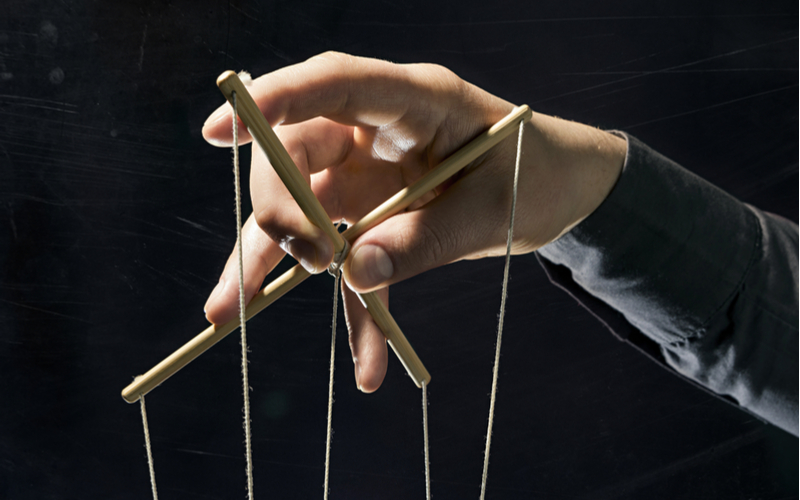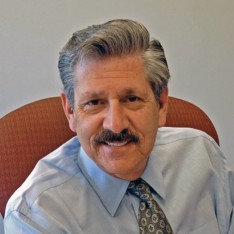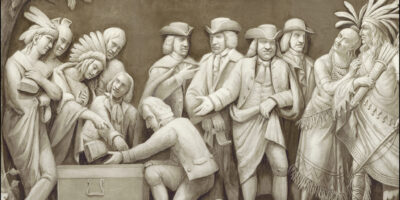Presidential Hubris: “Let Me Run the Country”
The television news cycle and social media have been filled with comments and criticisms concerning the combative exchange of words between the current president and CNN reporter James Acosta during a recent White House press conference. What seemingly received little or no attention were the words that Donald Trump used in describing his role as the president of the United States during the drama of that press conference.
Mr. Acosta wanted to know why the president viewed as an “invasion” the caravan of Central Americans moving through Mexico toward the U.S. border, rather than as simply a group of migrants on their way to the United States; and he wanted to know if this was not demonizing those people who were still hundreds of miles away from the United States.
President Trump never directly answered the reporter’s question, other than to say that that was how he viewed it and it was a matter of differing opinions. Trump did say that he was not against migration to the United States as long as people come in legally to fill jobs needing to be done, given that hundreds of businesses were said also to be coming to America.
Mr. Acosta was then shown in the video recording of the press conference briefly refusing to relinquish to a White House intern the microphone he was holding. President Trump accused Mr. Acosta of being rude and horrible, especially in his conduct toward the White House press secretary, Sarah Huckabee Sanders. The president also repeated his often-made claim that CNN is the disseminator of “fake news.”
Many in the media have stated that Trump was acting “unpresidential,” as well as undermining American democracy by, once again, characterizing members of the press as “enemies of the people” because of how President Trump views their portraying of news events. The controversy was heightened even more when shortly afterwards Mr. Acosta’s permanent press pass to the White House was pulled.
The Ignored Words “Let Me Run the Country”
In the midst of this verbal altercation during the press conference, what seems to have received no attention at all were the following words by President Trump directed to Mr. Acosta: “Honestly, I think you should let me run the country, and you run CNN.” In the ongoing heated battle between Donald Trump and the mainstream media it is perhaps not too surprising that this sentence in the middle of the press conference should have been ignored. After all, the drama is in the personalized bitterness that is seen almost every day in many of the printed and spoken words among the journalists who angrily discuss the president and desire to assist in his downfall, and in Donald Trump’s reciprocal contempt for and belittlement of all those in the media who challenge, question, or fail to praise his policies and personality. However, that sentence speaks legions not only about how the current president views his place and position as president of the United States, but how those who have occupied the White House Oval Office in the last several decades judge the role of the presidency in American society. Notice, if President Trump had said, “I think you should let me run the government,” it still would raise a variety of questions, but it would not contain the presumption and hubris that his actual words do, when reflected upon for a moment. The president is the chief executive of the federal government. He appoints cabinet members and through them and other senior officials in the government, he oversees a vast and complex bureaucracy that contains almost 450 departments, bureaus, and agencies, and employs over 2 million civilian workers. The idea that Donald Trump or any other mortal human being could successfully run an organization of over 2 million employees with duties and responsibilities counted in the thousands every day is completely unrealistic. What it can mean is that the president has broad responsibility for the direction and consequences of anything and everything done by all those legally answerable to the chief executive throughout the government. As the phrase goes, the “buck stops” at the desk in the Oval Office. But Donald Trump said, “I think you should let me run the country.” I don’t think this was a mere slip of the tongue. I think that this is how President Trump sees his role, as have many of his predecessors in the presidency. It is certainly how Hillary Clinton would have viewed it, if she were sitting in the Oval Office instead of Donald Trump. In other words, President Trump considers it his job to direct or at least influence the types and numbers of jobs available and created in the U.S. economy. He thinks that he is supposed to determine or nudge where American businesses are located and to what manufacturing and other activities they should be devoted. He views it as his responsibility to decide who can come into the United States, from what parts of the world, and in what numbers. He believes it to be his responsibility (within his conception of “America First”) to decide where in the world the U.S. government should be politically, militarily, and financially influencing or determining foreign governments and the policies they follow. Trump’s critics among the “progressives” and the Democratic Party may vehemently dislike and disagree with the content that he gives to these policy issues, but virtually all of them would agree that these issues are part of the job description of the president of the United States. They just want someone else to be in the Oval Office filling in the policy blanks to these issues in a way slightly or greatly different from how Donald Trump does. In other words, President Trump and his critics all believe that someone should be running the country. The idea that this has little or nothing to do with the founding principles upon which the United States was established, or that it may not be in the power and ability of someone to run the country rarely comes up. The fact that apparently no one even challenged Trump’s use of words in this context shows how imbedded is the idea of political paternalism and planning in the thinking and psychology among most news reporters and policy analysts in contemporary America as well as among the American citizenry. Most Americans are still familiar with the moving and eloquent words in the Declaration of Independence in which the great principle of American liberty is expressed that there are certain self-evident truths and that among them are each individual’s right to life, liberty, and pursuit of happiness. But nowadays far fewer Americans have any inkling of what follows in the Declaration of Independence, where the Founding Fathers enumerate the grievances of the American colonists against the British government. Political power and decision-making had been concentrated in the hands of those appointed by the British king and his ministers without approval of the colonists. Taxes were imposed on the colonies without their representative consent. Personal liberty and property rights were abridged or denied without due process and the rule of law. But at the heart of their complaints against the king were the British government’s control, regulation, and planning of the economic affairs of the colonists, both among themselves and with the rest of the world. Trading patterns and trade content were micromanaged from London and enforced with serious personal and financial penalties. What could be produced and to whom the outputs could be sold were set by acts of Parliament in faraway England, along with the fixing of various wages and prices. Layers of bureaucracy were superimposed on colonial life; it was explained that the British government had “erected a multitude of New Offices to harass the people and eat out their substance.” In other words, the Founding Fathers were significantly basing their justification for declaring the independence of the 13 colonies from British rule on the fact that the king and his government were “running the country.” The declaration of “unalienable” individual rights to life and liberty was a call for ending the regulation and planning of the country by kings and governments, and, instead, leaving those to the individual choices and actions of the free citizens in voluntary and peaceful commerce among themselves and with others around the globe. (See my article “A Declaration of Independence From Big Government.”) It is not surprising that in the same year as the Declaration of Independence, there appeared in March 1776 Adam Smith’s The Wealth of Nations. If the American Declaration was the political-philosophical explanation and justification for individual liberty and freedom of association and trade without government regulation and planning, Smith’s book articulated the reasons why government regulation and control were not only unnecessary to foster economic betterment and interpersonal coordinated harmony, but were, in fact, detrimental to those goals. In an institutional setting of individual liberty, private property rights, and voluntary exchange, individual participants in a social system of division of labor can improve their own circumstances only by applying their knowledge, abilities, and resources in a manner that betters the conditions of others. Since anything that others may have that you want can only be acquired through offering in trade something sufficiently of value that those others will part with the goods or services that you desire to have, all gains in trade and human betterment are mutual. Thus, each individual, in their own self-interest, must act in ways that improve the circumstances of other members of society. One of the great advantages of this institutional order of freedom and free trade, Adam Smith emphasized, is that it does not require any individual or governing body to plan, direct, or command what each of the members of the society do in terms of their choice of a niche in the division of labor. (See my articles “Adam Smith on Moral Sentiments, Division of Labor and the Invisible Hand” and “Adam Smith on Free Trade, Crony Capitalism and the Benefits from Commercial Society.”) To the contrary, the unplanned general social outcome, as if guided by “an invisible hand,” is far superior to any attempt by governments to run the country and its people. Indeed, it is far more harmful when those in government try to do so. Said Adam Smith: The statesman, who should attempt to direct private people in what manner they ought to employ their capitals, would not only load himself with a most unnecessary attention, but assume an authority which can safely be trusted, not only to no single person, but to no council or senate whatever, and which would nowhere be so dangerous as in the hands of a man who had folly and presumption enough to fancy himself fit to exercise it. Even worse, Adam Smith warned, when governments do go about the business of “running the country,” they create enmity and conflict between the citizens of separate nations that need not be and are not naturally there. Again, Adam Smith: Commerce, which ought naturally to be, among nations, as among individuals, a bond of union and friendship, has become the most fertile source of discord and animosity. The capricious ambition of kings and ministers has not, during the present and the preceding century, been more fatal to the repose of Europe, than the impertinent jealousy of merchants and manufacturers. We have a president who says he relishes possible trade wars with other countries, who says they are easy to win, and who considers import tariffs as useful economic weapons with which to try to bend other governments to his wishes. Furthermore, there are people in his administration who denounce any American citizens outside the federal bureaucracy who dare to speak out against and influence the president’s use of import taxes and other restrictive policy tools to get his way on the global scene. (See my articles “Tariff Walls and Trade Wars Equal Government Planning” and “Trump’s Economic Warfare Targets Innocent Victims.”) For instance, on November 9, 2018, one of Donald Trump’s leading trade advisors, Peter Navarro, attacked some leading American businessmen who had the audacity to speak with members of the Chinese government in an attempt to reduce tensions between China and the United States to preclude any further ratcheting up of the potential for a trade war between the two countries. No, Mr. Navarro insisted, what goods may be traded between countries and at what prices are strictly the domain of the president of the United States, who must be accepted as running the country and its economic relationships with other nations around the world. For many decades, presidents of the United States have suffered from the “folly and presumption enough to fancy [themselves] fit to exercise” that power to “direct private people in what manner they ought to employ their capitals.” Donald Trump has simply raised the rhetorical assertion of it to a more explicit level than some other presidents of the past. Trump’s talent is to say publicly in a jolting fashion what many others have believed and either left unspoken or said in softer language. From Adam Smith to the Austrian economists, it has been analyzed and explained that the nature of a developed system of division of labor encompassing multitudes of people who are dependent on each other for all the things of everyday life is inescapably too complex and ever-changing to be successfully planned and heavily regulated or controlled by governments and those who man the assigned bureaucracies and agencies. (See my articles “The Free Market Versus the Interventionist State” and “F. A. Hayek and Why Government Cannot Manage Society.”) But today everywhere is heard the cry for government to set higher minimum wages, to supply health care and college education free of charge, to extend and intensify the redistribution of wealth, to guarantee a universal income, to create jobs, and to oversee all energy use and methods of production to “save the planet.” This is to name just a few of the policy issues which, especially, those on the “progressive” political left demand that government and the president of the United States do in “running the country.” The Republicans and conservatives who have tied themselves to Donald Trump also see nothing wrong in having the government and the president run the country. Only, as was pointed out above, their focus is on directing the forms and locations of domestic investment and industry. Their focus is on determining foreign sales of goods in the United States and at what prices, and fostering the growth and use of fossil fuels, instead of the progressives’ focus on limiting and abolishing their use. They want to maintain and try to make more cost-efficient the existing entitlement programs (Social Security and Medicare and related federal programs), rather than expand them to the extent demanded by Democrats and progressives. The real political scandal in the press conference exchange between Donald Trump and James Acosta should have been the president’s matter-of-fact hubris that he should be left alone to “run the country.” For any government or political leader to run a country means to assert the right to run the lives and activities of the people of that country. It is the claim to abrogate the liberty of each and every member of that society to have the freedom to run their own life as they peacefully and honestly see fit in voluntary and mutually agreed-upon association with their fellow human beings for their respective betterment as they define it. For Donald Trump or Hillary Clinton, or any future president, to declare that their purpose is to run the country is to run counter to the original core American principles of individual freedom, private property, freedom of enterprise, free trade, and impartial rule of law under constitutionally limited government. That the President’s words were just passed over without comment or criticism tragically shows how far we’ve strayed from the ideas and ideals on which the country was founded. Government Runs 450 Agencies, With 2 Million Employees
Trump and His Critics Both Want to Run the Country
The Founding Fathers Believed in Each Person Running Their Own Life
Adam Smith’s Case Against Government Running the Economy
What Trump Wants to Do in Running the Country
Democratic and Republican Reasons to Want to “Run the Country”
The Real Scandal: Not Questioning a President Running the Country











